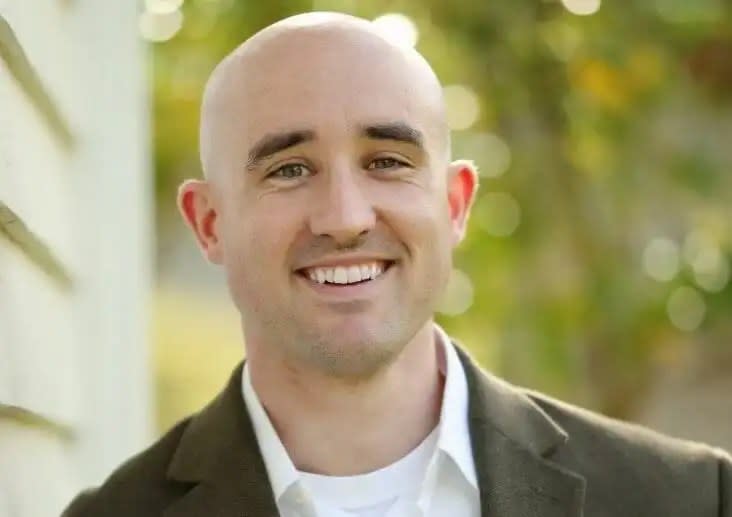Ask an Advisor: I Need an Estate Planner But I Have Trust Issues With Financial Advisors. What Should I Do?

I’m single, 85 years old and I need a financial estate planner, as well as an attorney for a will. All of my investments are in mutual funds that I’ve managed myself through the years, mainly because I’ve had bad (and costly) experiences with both financial advisors and lawyers. I, therefore, keep my financial situation to myself until I’ve established a trusting relationship with someone. I’m skeptical of advice from almost anyone (professional or not). I know I can’t keep putting this off much longer. Do you have any recommendations?
– Jim
I'm sorry to hear you've had such poor experiences with legal and financial advisors in the past. Getting burned by someone who is supposed to be helping you can certainly make you apprehensive about seeking professional (or nonprofessional) advice. Given your experiences, I think it is good to acknowledge and accept that skepticism as you have. Rather than trying to get around it completely, you can incorporate it into your decision. Here are some ways to do that.
If you need help planning your estate, consider working with a financial advisor with estate planning expertise. Connect with an advisor today.
Hire a Fiduciary

One step you can use to help sort through your options is to look for fee-only fiduciaries. Someone who is a fiduciary is required to provide advice that is in the client's best interest. While this doesn't guarantee that you can trust them, it does mean that they are held to a high legal standard.
A simple illustration of this distinction is that a fiduciary cannot recommend a strategy that generates more revenue for their firm if it’s not the best option for you.
Also keep in mind that the the term "financial advisor" historically has not been a regulated title, meaning there weren’t any specific criteria someone had to meet to market themselves as one. Commission-based brokers and insurance agents have all commonly used the term. But these professionals are not all held to the same regulatory requirements (and the fiduciary standard) as registered investment advisors (RIAs) when it comes to how they work with clients.
Under an SEC rule called Regulation Best Interest, broker-dealers are no longer allowed to call themselves “advisors” or “advisers” if they aren’t registered as an investment advisor with the SEC and a state authority.
Meanwhile, fee-only advisors are compensated solely by the fees their clients pay for the services they receive, not commissions for selling products. A fee-based advisor, on the other hand, may receive commissions when recommending certain products and services, in addition to the fees that advisory clients pay.
(If you need help finding an advisor who’s a fiduciary, SmartAsset’s matching tool can connect you with fiduciary financial advisors who serve your area.)
Work With Credentialed Professionals

A major benefit of working with a credentialed professional is the assurance of their expertise, but that’s not the only reason to consider their credentials.
Many professional credentialing organizations require their certified members adhere to rigorous practice and ethical standards. Maintaining these credentials often subjects advisors to oversight by the appropriate professional body. These organizations have a vested interest in ensuring their members conduct themselves in a way that reflects well on the group, providing an additional layer of scrutiny beyond your own.
The
designation is perhaps the most notable credential among financial professionals. The CFP® credential signals broad expertise in the field of financial planning, including estate planning. The CFP Board mandates that recipients abide by fiduciary duty and put the client’s interests before their own, exercise due care and properly manage any conflicts of interest.
Certified public accountants (CPAs), meanwhile, are subject to the oversight of their respective state boards. You may also consider finding an advisor who holds the accredited estate planner (AEP®) designation, which means they devote at least a third of their time to estate planning. (If you need help finding an advisor who serves your area, connect with one for free using SmartAsset’s matching tool.)
Trust Your Intuition
There are a lot of advisors out there – more than 300,000 of them. Not all are estate specialists, but that number also doesn't include the thousands of estate attorneys there are.
While you may feel less trusting of some professionals and more trusting of others, the good news is that you don't have to hire the first estate planner you meet. You can interview as many of them as you'd like. This can be a good way to vet someone before you start working with them. As you do, you'll naturally get a sense of their character. If something feels off about someone, simply move on.
To help you get a sense of the types of things you may want to ask prospective advisors, consider these 10 questions. (And if you need help starting your search for potential candidates, SmartAsset can find you fiduciary advisors who serve your area.)
Bottom Line
Trusting your personal finances to someone else can be tough for anybody. It may be especially hard if you've had poor experiences in the past. While you may not ever be able to fully overcome feelings of distrust, there are steps you can take to mitigate the risk and make you feel more comfortable seeking the help you need. Working with a credentialed advisor who abides by fiduciary duty, and taking the time to conduct interviews, can go a long way.
Tips for Finding a Financial Advisor
As you explore how to find and choose a financial advisor, reviewing an advisor’s regulatory record is an important step. All investment advisors are required to file documents with the SEC each year and disclose any legal, civil or regulatory events that they’ve been part of. Here’s a deeper explanation of financial advisor disclosures and why they matter.
Finding a financial advisor doesn't have to be hard. SmartAsset's free tool matches you with up to three vetted financial advisors who serve your area, and you can have a free introductory call with your advisor matches to decide which one you feel is right for you. If you're ready to find an advisor who can help you achieve your financial goals, get started now.
Brandon Renfro, CFP®, is a SmartAsset financial planning columnist and answers reader questions on personal finance and tax topics. Got a question you'd like answered? Email AskAnAdvisor@smartasset.com and your question may be answered in a future column.
Please note that Brandon is not an employee of SmartAsset and is not a participant in SmartAsset AMP. He has been compensated for this article. Some reader-submitted questions are edited for clarity or brevity.
Photo credit: ©iStock.com/fizkes, ©iStock.com/PeopleImages
The post Ask an Advisor: I Need an Estate Planner But I Have Trust Issues With Financial Advisors. What Should I Do? appeared first on SmartReads by SmartAsset.

 Yahoo Finance
Yahoo Finance 
